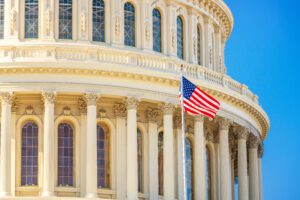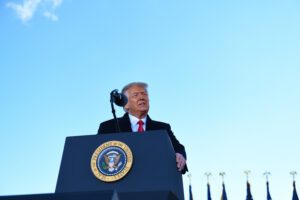The economic crisis caused by the coronavirus pandemic poses a triple challenge for tax policy in the United States. Lawmakers are tasked with crafting a policy response that will accelerate the economic recovery, reduce the mounting deficit, and protect the most vulnerable.
To assist lawmakers in navigating the challenge, and to help the American public understand the tax changes being proposed, the Tax Foundation’s Center for Federal Tax Policy modeled how 70 potential changes to the tax code would affect the U.S. economy, distribution of the tax burden, and federal revenue.
In tax policy there is an ever-present trade-off among how much revenue a tax will raise, who bears the burden of a tax, and what impact a tax will have on economic growth. Armed with the information in our new book, Options for Reforming America’s Tax Code 2.0, policymakers can debate the relative merits and trade-offs of each option to improve the tax code in a post-pandemic world.

Five Facts to Know about the Bipartisan Tax Deal
The U.S. House of Representatives has passed a highly anticipated bipartisan tax deal. The Tax Relief for American Workers and Families Act now awaits action in the Senate.
6 min read
Maryland Considers Raising Local Income Taxes
Local income taxes in Maryland constitute about 35 percent of local tax collections and more than 17 percent of local revenue, giving Maryland’s localities the highest dependence on income taxes in the nation.
5 min read
Tax Foundation Discussion on the Harms of Retaliatory Tax and Trade Policies
Historical evidence and recent studies have shown that retaliatory tax and trade proposals raise prices and reduce the quantity of goods and services available to U.S. businesses and consumers, resulting in lower incomes, reduced employment, and lower economic output.
5 min read
Mind the Gap, Please! How Portugal Could Reform Its VAT System
Portugal’s value-added tax (VAT) policy is a treasure trove of tax oddities. Thankfully, VAT base broadening is an ideal instrument to give the Portuguese government the fiscal room to implement pro-growth tax reforms
5 min read
A Lower, Flat Income Tax Would Promote Long-Term Economic Growth in Kansas
After years of strong revenue growth, Kansas has substantial cash reserves on hand, and policymakers on both sides of the aisle have expressed a desire to return some of the extra revenue to taxpayers.
5 min read
Tariff of Abominations Redux: Trump Proposes 60% Tariff on Chinese Goods
The Trump campaign is mulling a massive tax increase on American purchases from China. If reelected, he might quintuple the tax, imposing tariffs of 60 percent on imports from China. The economic ramifications would be significant and unwelcome.
5 min read
Permanent Bipartisan Tax Deal Would Grow Economy but Create Revenue Challenges
Examining the revenue, economic, and distributional effects of a hypothetical deal with permanent tax policy changes shows the longer-run trade-offs policymakers would face.
5 min read
Details and Analysis of the Tax Relief for American Families and Workers Act of 2024
The House Ways and Means Committee has advanced a tax deal to the House floor that would temporarily—and retroactively—restore two major business deductions for cost recovery and expand the child tax credit through 2025.
10 min read
Michigan Tobacco Bills Could Reduce Revenue and Increase Smuggling
Two pieces of tobacco legislation in Michigan have the potential to decrease state tax collections by $320 million per year, deter smokers from switching to less harmful products, and increase illicit trade and crime.
4 min read
JCT Report Shows How Corporate Tax Breaks Have Expanded
Lawmakers should prioritize creating a tax system that supports investment more broadly rather than subsidizing specific industries and allowing broad, neutral pro-investment provisions to expire.
3 min read